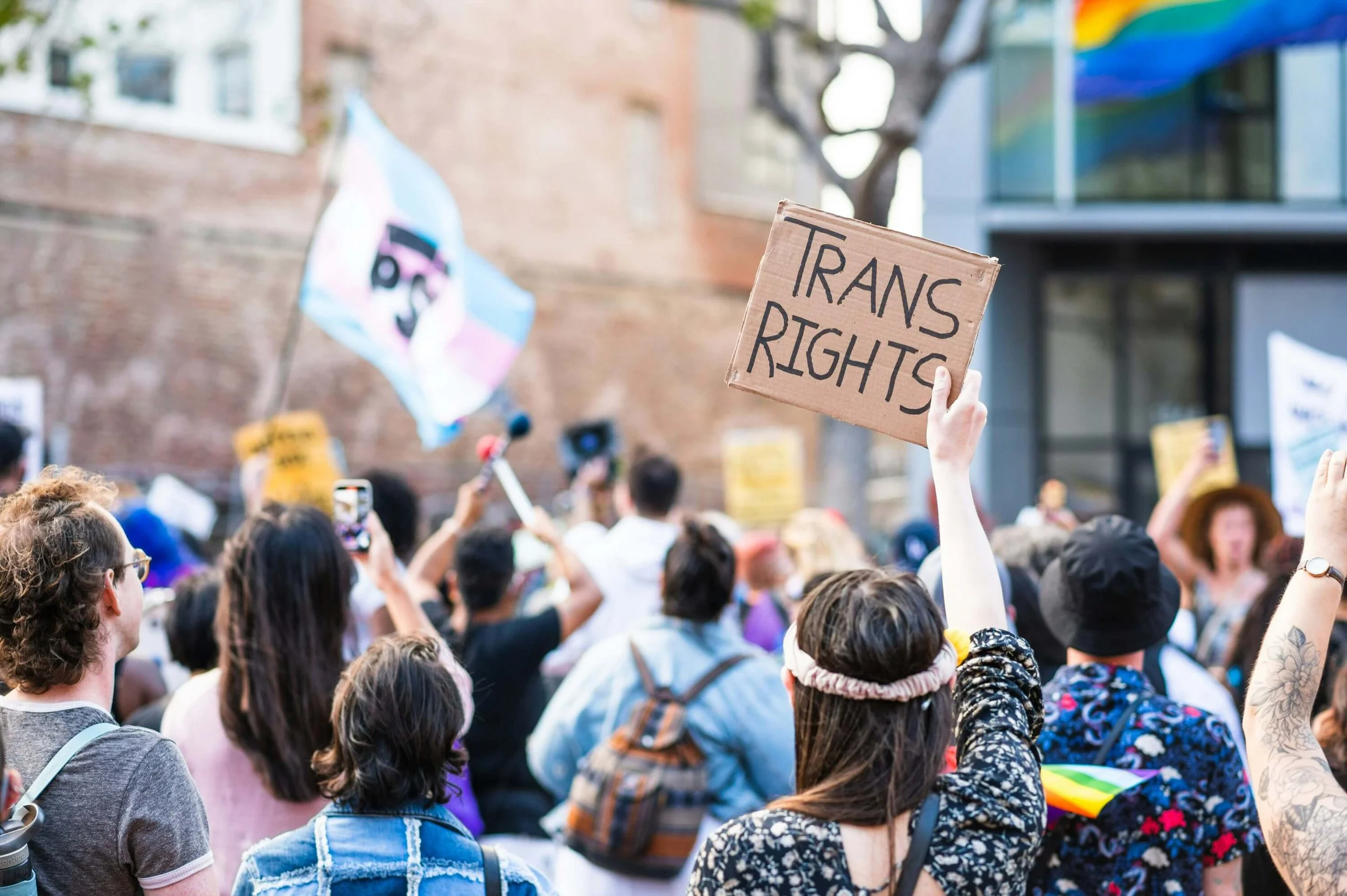Why I Might Be Relapsing and Struggling Right Now: A Trans Perspective
May 16, 2025 | By Chris Sherman
A Trans Perspective on the Intersection of Current Events, Eating Disorders, and Addiction
The first anti-transgender executive order sent chills down my spine. There was nothing new in it. The language reminded me of friends, family, and my religious tradition. I had taken many steps in my life to move away from a world that pushed me into a suffocating box. I'd embarked on an arduous journey to live outwardly as trans. I built a community that supported my growth without needing me to change any part of myself. I worked incredibly hard to learn to care for my body instead of being at war with it. I was finally feeling empowered in my lifelong fight to love myself and find joy in life. At that moment, I felt deeply fragile and afraid. Could all of this be taken away in an instant?
Why Trans Individuals Often Struggle with Addiction and Eating Disorders
As a trans person in this nation, our rights are always uncertain. The environment at our workplaces can shift drastically based on our next supervisor or colleague. In many places, laws don't adequately protect us from violence and discrimination, and even when protections exist, they aren't always enforced. When our rights or sense of safety are violated, we're blamed. Over and over, we've been told by ourselves and others that our bodies are the problem.
It's no surprise then, that many of us have histories of harming our bodies in various ways. Alcoholism, substance use, eating disorders, self-harm, and suicidal ideation are tragically common in our community. This is partly because we've repeatedly heard messages that we, our bodies, are the problem. Responding to internal and external hatred, we might use methods to control, exert power over, punish, or even annihilate our bodies.
If You're Struggling, You’re Not Alone
These past few months have been challenging. If your mind constantly races with survival questions, you're not alone. If you regularly wake up from nightmares featuring people (past and present) who found your gender identity abhorrent, I feel your pain. If you walk around engulfed in a cloud of vulnerability and anger, feeling like the smallest incident might trigger an outburst, you're in good company. If anxiety, hopelessness, or depression seem overwhelming, leading you toward old addictive patterns for relief, you might indeed feel unprepared. Recovery doesn't always equip us for the relentless erosion of our personhood. In recovery circles, we're advised to lean on our community in tough times, but what if everyone in your community is struggling simultaneously?
If you're relapsing right now, you are not alone. If you're watching a loved one struggle with new or old vices, you might feel powerless, angry, scared, or overwhelmed by your fears. Many of us have reached our limits. Asking for help or expressing concern can feel impossible. Tempers may be short, or we might shut down altogether. We don't always have words to describe our struggle. We might regret words unspoken or wish we could clearly state our needs. This blog can't capture all the emotions and reasons life feels hard right now, but perhaps by sharing my thoughts, it can help you find words to ask for or offer help.
What I Wish You Understood About My Struggle
I wish you understood how intense and raw my emotions feel right now. Some days I feel like a red-hot ball of rage wrapped in thin cellophane; other days, I'm so fragile that dropping a pen could make me cry. I wish you knew the immense pressure I feel trying not to let anything slip. Sometimes, I feel completely numb, unable to react to even one more thing. I wish you realized how hard I'm working just to hold it together and be present with you. I know you might feel similarly, for a variety of reasons.
I know you might feel frustrated by how I'm coping right now (whether it’s relapsing, shutting down, or appearing overly needy.) I'm ashamed of my behavior. I hate how it's impacting our relationship. I wish I could be stronger and better right now, too. I'm terrified that my struggles might become too much, causing you to leave at a time when support feels desperately scarce.
How You Can Support Me Right Now
I realize you might be trying to support me, but my needs might differ significantly from what I've needed in the past. Right now, I'm terrified, and I need reassurance that you'll take action to protect me. Yes, I still need a listening ear, and practical gestures, like eating meals together or reminding me to take my medication, are valuable. But the external threats currently feel bigger than the ways I'm harming myself. I need to witness your willingness to engage those threats alongside me, even if it makes you uncomfortable.
Supporting me means taking visible action to affirm my personhood, my right to healthcare, and my right to live authentically. Depending on your capacity and skills, this could mean standing up for people like me in your community (even if you don't know them personally). It might mean consistently using my (and others') correct name and pronouns, even when facing political disagreement. It could mean contacting your congressperson, leaving comments on rules impacting trans rights, attending local town halls, or participating in protests.
Trans Issues Impact Everyone, Including You
I wish you understood that trans issues affect everyone, including you. The foundation of anti-trans discrimination asserts that mental health diagnoses can disqualify people from jobs, identification, and health insurance coverage. For example, the attempted trans military ban stated a history of gender dysphoria disqualifies one from service. Similarly, certain healthcare rules indicate that having a history of gender dysphoria could prevent access to medical care coverage.
If this discrimination becomes accepted, what could happen next? Will individuals with histories of postpartum depression lose prenatal care coverage? Will anxiety or depression histories be used to deny education or employment opportunities? These policies dictate who has the right to live or die. This is not solely a trans issue, it's about all of our futures. Please don't wait until it personally affects you to act and speak out.
Thank You for Fighting Each Day
If you're fighting daily battles inside your mind and with the outside world, I offer you a sincere "Thank You." Right now, simply being alive is an act of resistance. Joy and peace are among the first things authoritarian governments try to steal from us. Finding joy in small things is resistance. Pursuing inner peace is both a gift to ourselves and to the broader movement. You don't have to be perfect to show up and offer love. Please take care of yourself the best you can. You are precious, and this will be a long fight, we'll need clarity and strength to keep standing strong. We're in this together.
Chris Sherman (they/them), LPC, LCPC, E-RYT 200, CPT is a therapist and personal trainer at Thrive As You Are (thriveasyouare.org). They are currently very emotional and trying to appreciate the daily beauty of sunsets.
Note from Monarch: We were thrilled to have Chris with our practice for some time and we are intimately familiar with their work. We couldn’t recommend their practice enough.
Reach Out
If you’re considering professional support, we’re here to help. Please reach out to schedule a free, no-commitment consultation. There’s no fee and no obligation—just click the button below to get started.
You can also call or text us at 202-656-3681, or email us directly. Give yourself the opportunity for the support you deserve.





